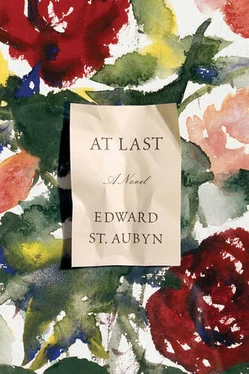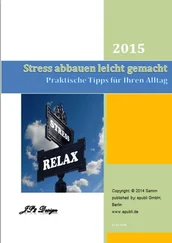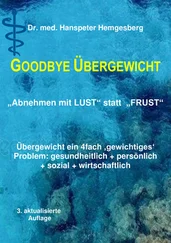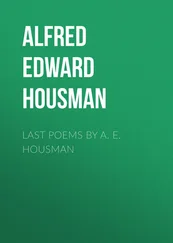‘I wanted to say, “You’ve already killed Georgina and now you want to kill Patrick,”’ Eleanor told Mary, to show how bold she would have been if she had said anything at all. ‘I wanted to call the police!’
Well, why didn’t you? was all that Mary could think, but she said nothing about Eleanor saying nothing; she just nodded and went on being a good listener.
‘It was like…’ said Eleanor, ‘it was like that Goya painting of Saturn devouring his son.’ Brought up surrounded by great paintings, Eleanor had experienced a late-adolescent crush on the History of Art, rudely guillotined by her disinheritance, and replaced by a proclivity for bright dollops of optimistic symbolism. Nevertheless, she could still remember, when she was twenty, driving through Spain in her first car, and being shocked, on a visit to the Prado, by the black vision of those late Goyas.
Mary was struck by the comparison, because it was unusual for Eleanor to make that sort of connection, and also because she knew the painting well, and could easily visualize the gaping mouth, the staring eyes and the ragged white hair of the old god of melancholy, mad with jealousy and the fear of usurpation, as he fed on the bleeding corpse of his decapitated child. Watching Eleanor plead for exoneration made Mary realize that her mother-in-law could never have protected anyone else when she was so entranced by her own vulnerability, so desperate to be saved. Later in her marriage, Eleanor did manage to get police protection for herself. It was in Saint-Nazaire, just after she learned about her mother’s death and, not yet knowing the content of the will, was expecting to get control of a world-class fortune. She had to fly to Rome later that morning for the funeral, and David sat opposite her at the breakfast table, brooding about the possible consequences of his wife’s increased independence.
‘You’re looking forward to getting your hands on all that lovely money,’ he said, walking round to her side of the table. She got up, sensing danger. ‘But you’re not going to,’ he added, grabbing her and pressing his thumbs expertly into her throat, ‘because I’m going to kill you.’
Almost unconscious, she had managed to knee him in the balls with all her remaining strength. In the reflex of pain, he let go long enough for her to slide across the table and bolt out of the house. He pursued her for a while, but the twenty-three-year age difference took its toll on his tired body and she escaped into the woods. Convinced that he would follow by car, she struggled through the undergrowth to the local police station, and arrived scratched, bleeding and in tears. The two gendarmes who drove her back to the house stood guard over a proud and sulky David while she packed her bags for Rome. She left with relief, but without Patrick, who stayed behind with only the flimsy protection of yet another terrified nanny — they lasted, on average, about six weeks. Eleanor might have been out of reach, but once he had given the nanny a munificent day out, and sent Yvette home, David had the consolation of torturing his son without any interference from the gendarmerie.
In the end, Eleanor’s betrayal of the maternal instinct that ruled Mary’s own life formed an absolute barrier to the liking she could feel for her. She could remember her own sons at three weeks old: their hot silky heads burrowing their way back into the shelter of her body to soften the shock of being born. The thought of handing them over, before their skin could bear the roughness of wool, to be hacked at with knives by a cruel and sinister man required a level of treachery that blinded her imagination.
No doubt David had searched hard among the foolish and the meek to find a woman who could put up with his special tastes, but once his depravity was on full display, how could Eleanor escape the charge of colluding with a sadist and a paedophile? She had invited children from other families to spend their holidays in the South of France and, like Patrick, they had been raped and inducted into an underworld of shame and secrecy, backed by convincing threats of punishment and death. Just before her first stroke, Eleanor received a letter from one of those children, saying that after a lifetime of insomnia, self-harm, frigidity, promiscuity, perpetual anxiety and suicide attempts, she had started to lead a more normal life, thanks to seven years of therapy, and had finally been able to forgive Eleanor for not protecting her during the summer she stayed with the Melroses. When she showed the letter to Mary, Eleanor dwelt on the injustice of being made to feel guilty about a category of behaviour she had not even known existed, although it was going on in the bedroom next to hers.
And yet how ignorant could she really have been? The year before the arrival of the letter that so dismayed Eleanor, Patrick had received a letter from Sophie, an old au pair, who had heroically stayed with the Melroses for more than two years, more than twenty times the average endurance shown by the parade of incredulous young foreign women who passed through the house. In her letter, Sophie confessed to decades of guilt about the time she had spent looking after Patrick. She used to hear screams down the corridor of the house in Lacoste, and she knew that Patrick was being tormented, not merely punished or frustrated, but she was only nineteen at the time and she hesitated to intervene. She also confessed that she was terrified of David and, despite being genuinely fond of Patrick and feeling some pity for Eleanor, longed to get away from his grotesque family.
If Sophie knew that something was terribly wrong, how could Eleanor not have known? It was common enough to ignore what was seemingly impossible to ignore, but Eleanor stuck to her blindness with uncommon tenacity. Through all her programmes of self-discovery and shamanic healing, she avoided acknowledging her passion for avoidance. If she had ever discovered her real ‘power animals’, Mary suspected they would have been the Three Monkeys: See no Evil, Hear no Evil, Speak no Evil. Mary also suspected that these grim vigilantes had been killed off by one of her strokes, flooding her all at once with the fragments of knowledge that she had kept sealed off from each other, like the cells of a secret organization. In a parody of wholeness, the fragments converged when it was too late to make them cohere.
Eleanor was entirely confined to the nursing home for the last two years of her life, rarely leaving her bed. For the first year, Mary went on assuming that at least one of the threads holding Eleanor to her tormented existence was concern for her family, and she continued to reassure her that they were well. Later, she began to see that what really trapped Eleanor was not the strength of her attachments, but rather their weakness: without anything substantial to ‘let go’ of, she was left with only the volatility of her guilt and confusion. Part of her was aching to die, but she could never find the time; there was no gap between the proliferating anxieties; the desire to die collided instantly with the dread of dying, which in turn gave birth to a renewed desire.
For the second year, Mary was largely silent. She went into the room and wished Eleanor well. What else was there to do?
The last time she had seen her mother-in-law was two weeks ago. By then Eleanor had achieved a tranquillity indistinguishable from pure absence. Gaunt and drawn, her face seemed incapable of any deliberate change. Mary could remember Eleanor telling her, in one of those alienating confidential chats, that she knew exactly when she was going to die. The mysterious source of this information (Astrology? Channelling? A morbid guru? A drumming session? A prophetic dream?) was never unveiled, but the news was delivered with the slightly boastful serenity of pure fantasy. Mary felt that the certainty of death and the uncertainty of both its timing and its meaning were fundamental facts of life. Eleanor, on the other hand, knew exactly when she was going to die and that her death was not final. By the end, as far as Mary could tell, this conviction had deserted Eleanor, along with all the other features of her personality, as if a sandstorm had raged through her, ripping away every sign of comfort, and leaving a smooth and sterile landscape under a dry blank sky.
Читать дальше












